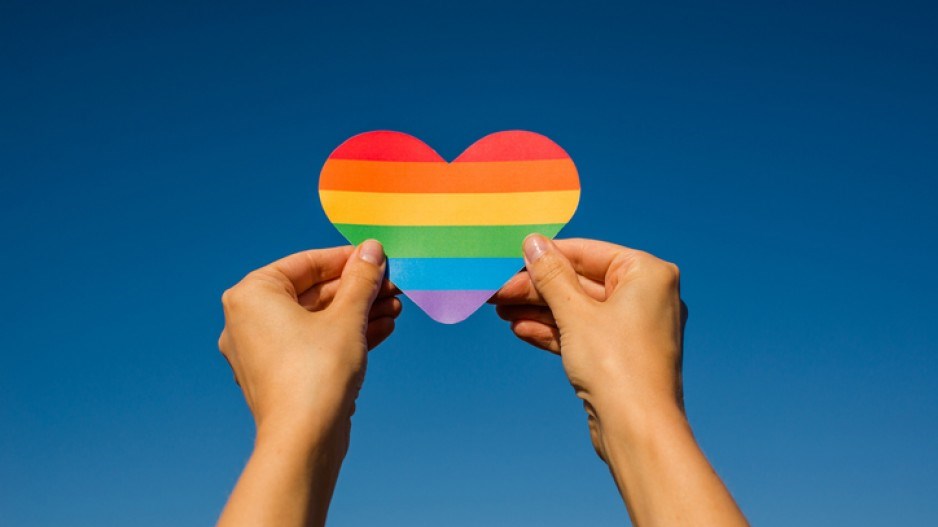The year of COVID-19 brought a very different tone to the pride celebrations in many cities across North America.
Canadians were not able to observe the 15th anniversary of the legalization of same-sex marriage with the fanfare of years past. Americans – who had to wait a decade longer to finally achieve marriage equality – were also confined to virtual rallies.
In spite of how much has been achieved by the lesbian, gay, bisexual, trans, gender diverse, queer, and Two-Spirit (LGBTQ2+) community, there are still matters to deal with in the 21st Century. The existence of “conversion therapy” remains a threat to young people in Canada and the United States. Centre-right political parties continue to have problems taking a firm stand against candidates whose views are archaic, for fear of alienating other voters.
When Research Co. and Glacier Media asked residents of Canada and the United States, we found some topics where the reaction of residents of the two countries is similar. The proportion of Canadians who think people “choose” to be LGBTQ2+ stands at 28%, up five points since we asked last year, and rises to 36% among those who voted for the Conservative Party in the 2019 federal election.
Just over a third of Americans (34%) believe people “choose” to be LGBTQ2+, including 50% of those who voted for defeated candidate Donald Trump in the 2020 presidential election. In short, about two-thirds of Canadians and Americans do not subscribe to the notion of people “choosing” to be LGBTQ2+, either directly or indirectly.
Only one in four Canadians (23%, down two points since 2019) believe that individuals who identify themselves as LGBTQ2+ can be “converted” into heterosexuals through psychological or spiritual intervention. While Americans are more likely to think that “conversion therapy” is possible, the numbers are well short of a majority (37%). Once again, Republicans are responsible for boosting the results, with 52% believing that individuals can be “converted,” compared to 33% of Democrats and 27% of Independents.
On the question of whether “conversion therapy” should be banned, we find consensus across both countries, with 56% of Canadians and Americans thinking a prohibition would be warranted, and significantly fewer (23% in Canada and 25% in the United States) disagreeing with this rationale. Some may believe this flawed approach is advisable, but majorities think it has no place in their societies.
In Canada, two-thirds of residents (67%) continue to back the legality of same-sex marriage, while fewer prefer the concept of civil unions (12%) or no legal recognition (10%) for same-sex partners. In the United States, a smaller majority (57%) endorses same-sex marriage, while 17% opt for civil unions and 16% would not extend legal recognition to same sex partnerships – a proportion that jumps to 28% among Republicans.
The results show that, in Canada and the United States, the proportion of residents who are dissatisfied with the advancement of LGBTQ2+ issues is relatively small. They are far from representing a majority of Conservative voters in Canada but remain particularly strong – on issues such as the viability of “conversion therapy” – among Republicans in the United States.
Political leaders may be tempted to say that the views of some members of their base must always be taken into consideration. This is both toxic and ineffectual. In the most recent British Columbia election, candidates who failed on LGBTQ2+ rights – whether in past municipal votes or statements to the media – lost their bids to earn seats in the Legislative Assembly. The province as a whole has become more accepting and has the lowest proportion of residents that adhere to a specific religion in Canada. Moral obstinacy is not the best road to earn more votes and seats.
At this stage, Canadians are more likely to embrace marriage equality than Americans, but the proportion of residents of the two countries who want to do away with the practice of “conversion therapy” is identical. Political action has started at the federal level in Canada. The incoming U.S. administration will have an opportunity to follow suit, but we must acknowledge that this type of change will take longer in Washington – as outlined by the 10-year difference in same-sex marriage becoming legal on both sides of the 49th parallel.
Regardless of the speed in which change arrives on the “conversion therapy” file, all political parties need to start addressing LGBTQ2+ issues in an authentic manner. There is a difference in choosing not to throw garbage out of a vehicle because a police officer might see you and deciding not to do so out of a genuine belief that littering is wrong. On moral issues, the hypocrisy of leaders and candidates who choose a side out of fear of losing “some” voters – and not because of a true conviction – is easy to spot.
Mario Canseco is president of Research Co.
Results are based on online studies conducted from November 14 to November 16, 2020, among representative samples of 1,000 adults in Canada and 1,200 adults in the United States. The data has been statistically weighted according to Canadian and U.S. census figures for age, gender and region in each country. The margin of error, which measures sample variability, is plus or minus 3.1 percentage points for Canada and plus or minus 2.8 percentage points for the United States.




